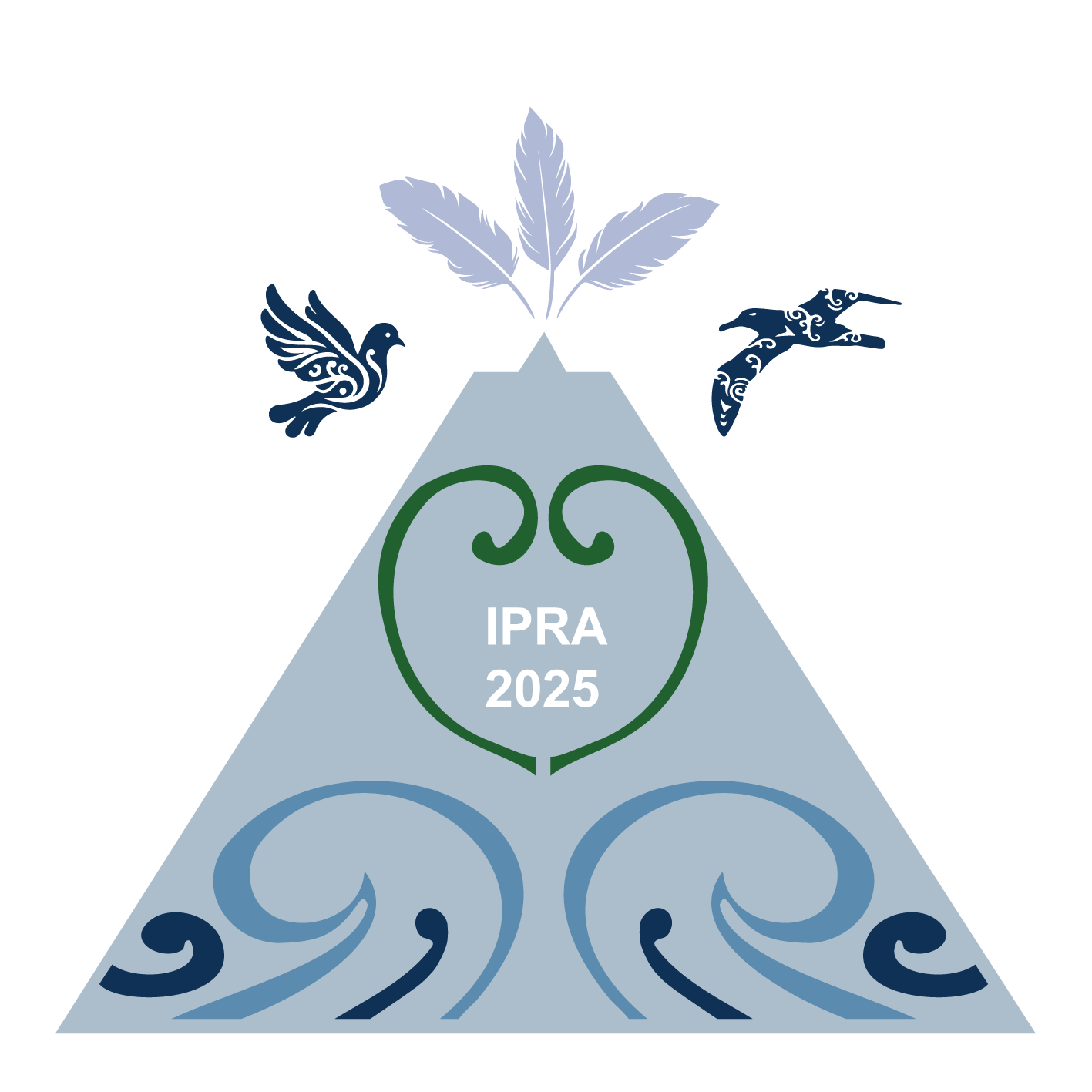

The 30th Biennial IPRA Conference
Featured Speakers
and
Plenary Panels
Featured Speakers
From IPRA's beloved former Secretary-General, Kevin Clements, to a variety of Māori scholars; from key leaders from our Afro-Caribbean and Latin American networks engaged two years ago in Trinidad, to new and established contacts from every corner of the globe, IPRA's network is expanding and deepening in these crucial times.

Wharehoka Wano
(Taranaki, Te Atiawa, Ngāti Mutunga, Ngāti Tama, Ngāti Awa)
is a well-respected teacher, actor, and leader. After a 30-year career in education, Wharehoka took up the CEO role for Taranaki Iwi in 2016. More recently he has moved in to the Pou Whakahaere (CEO) role for Te Tōpuni Ngarahu the Ngā Iwi o Taranaki Regional Body. As a tribal leader with whakapapa to Parihaka, peace and reconciliation are integrated parts of all that he does, and his leadership style encompasses those values.
.jpg)
Vivian Tatiana Camacho Hinojosa

Tonga Karena
is a Māori scholar and activist who holds the role of Pou Tikanga at Tui Ora Taranaki, providing cultural vision and leadership. As a tribal leader, Tonga provides expertise and revitalisation in the field of Parihakatanga, Pacifism, Revolutionary Nonviolence, and Indigenous peace traditions within Aotearoa New Zealand.

Puna Wano-Bryant

Malaka Shwaikh
is a Palestinian academic from the Gaza Strip, currently based in Scotland where she teaches and researches prisons as spaces of power, resistance, and peacebuilding. In addition to her research commitments, she is a trustee of Firefly International and St Andrews Education for Palestinian Studies. In 2021, she co-founded FreelancersinGaza.com with Candace Amani to connect youths in Gaza with clients around the world and provide them with mentorship. Dr. Shwaikh currently serves as the Vice President of the European Peace Research Association (EuPRA).

Asmi Wood

Iya Akilah Jaramogi
is the founder and managing director of Trinidad's Fondes Amandes Community Reforestation Project (FACRP), a community-based land restoration and environmental conservation non-profit founded in 1982. A leader of Trinidad and Tobago's Merikin community, dedicated to preserving the heritage of descendants of the Indigenous Maroons of the region. Jaramogi is also a founder and director of the United Maroon Indigenous Peoples, which brings together Maroon peoples globally and campaigns for official UN recognition. The closing of IPRA's 29th Biennial conference in 2023 took place on the lands of FACRP.


Kevin Clements
Emeritus Professor Kevin Clements is currently the Director of the Toda Peace Institute, formerly called the Toda Institute for Global Peace and Policy Research, an independent, nonpartisan institute committed to advancing a non-violent, sustainable and peaceful world through policy-orientated peace research and practice. He was the Foundation Chair of Peace and Conflict Studies and Foundation Director of the National Centre for Peace and Conflict Studies at the University of Otago, New Zealand. For several years, he served as Secretary General of the International Peace Research Association (IPRA), President of the IPRA Foundation and Secretary General for IPRA's Asia-Pacific region (APPRA).
Plenary Panels
_edited.jpg)
Now More Than Ever:
Nuclear justice, organizing, and what we owe each other
Three activists/academics join in conversation on nuclear disarmament and what it means today to work collaboratively: affirming our intersectional identities, building solidarities, and honoring our commitments to a world without nuclear weapons.
What does it mean to have a Nobel Peace Prize for work that is unfinished? How do we link our demands for climate justice, gender liberation, disability justice, indigenous sovereignty, and human rights with our nuclear disarmament work? Our conversation will mirror radical hopefulness, relational connectivity, and a decolonizing framework, inviting everyone into the work for a more peaceful and just world.
Panelists:
Nobel Peace laureates from the organization,
International Campaign to Abolish Nuclear Weapons (ICAN)

Dimity Hawkins
(Australia)
Co-founder

Tamatoa Tepuhiarii
(Mā'ohi Nui/
French Polynesia)
International Representative

Emily Welty
(USA)
Founding member;
Department of Peace and Justice Studies Chair,
Pace University
_edited.jpg)
Negotiating Peace and Social Justice Through Nonviolent Pathways:
Understanding African Values and Practices
While the literature on conflict and peace in Africa largely focuses on violent conflict and top-down or externally driven post-conflict peacebuilding, this panel explores the extent to which peace and social justice are simultaneously being negotiated in nonviolent ways in African societies as a path to durable peace.
It also focuses on how grassroots, national, cross-border, and regional organizations negotiate peace in ways that are driven by non-violent African values, norms, principles, and practices.
The panel unpacks how such indigenous and homegrown values interact across cultures at the local level and contribute to global peacemaking.
Sponsored by:
Social Science Research Council (SSRC)
Panel Co-
coordinator:

Cyril Obi
(Nigeria/USA)
Program Director,
Social Science Research Council (SSRC)
Panel Co-
coordinator:

Jacinta Mwende Maweu
(Kenya)
Secretary,
African Peace and Education Research Association (AFPREA)


